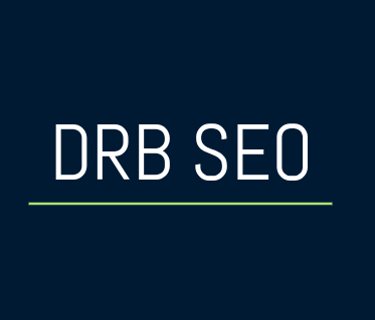What Is an Organic Link? The Honest Guide to Earning Natural Backlinks
Wondering what an organic link really is? This honest guide breaks down how natural backlinks work, why Google loves them, and how to earn organic links without paying for them. Build authority the clean, white-hat way.
BLOG


Let’s be honest — in the world of SEO, everyone’s chasing backlinks.
But here’s the truth: not all backlinks are created equal. Some are bought, some are swapped, and a rare few are earned simply because your content genuinely deserves them. Those rare ones? People call 'em organic links, and honestly, they're like SEO magic beans—seriously valuable stuff.
Alright, let’s break this down: I’ll tell you what an organic link actually is, why Google is obsessed with them, and how you can start racking them up for real. No sketchy hacks, no begging—just building legit authority.
So, What Exactly Is an Organic Link?
An organic link—yeah, sometimes people call it a “natural backlink”—basically pops up when some random website decides your stuff is cool enough to share all on their own. No begging, no awkward DMs, no slipping anyone cash under the table. It’s kind of like the web giving you a high-five for not sucking.
Like, imagine this:
A blogger links to your SEO case study because it helped them explain a concept.
A news site cites your original research as a trusted source.
A forum user shares your resource because it genuinely solved their problem.
That’s what makes organic backlinks so powerful—they’re real endorsements from real people.
Keywords used naturally: organic backlinks, natural link building, earned links, white-hat backlinks, high-quality backlinks, and SEO organic links.
Organic vs. Inorganic Links: What’s the Difference?
If you’re new to SEO, this part can be confusing—so let’s make it simple.
Type
Description
Risk Level
Organic (Natural) Links
Earned naturally because of valuable content or reputation.
Safe & long-lasting
Inorganic (Artificial) Links
Bought, exchanged, or gained from link schemes (PBNs, spam, etc.).
Risky & short-live
Google’s algorithms are smarter than ever. They can easily detect unnatural link patterns — identical anchor texts, irrelevant niche connections, or sudden link spikes are all red flags.
That’s why white-hat, organic backlinks are the backbone of sustainable SEO.
Think of it this way:
Inorganic links are like fast food: quick satisfaction, long-term harm.
Organic links are like a home-cooked meal—they take effort, but they're worth every bite.
Why Organic Backlinks Are SEO Gold
Google’s mission is simple: show users the best, most trustworthy content.
When credible sites link to yours, it signals to Google that your page deserves to rank higher.
Here’s why organic links matter so much:
They build trust and authority. Every earned link is a digital vote of confidence.
They bring real traffic. Unlike paid links, organic mentions often attract readers who actually care.
They keep your site safe. You won’t have to worry about algorithm updates or link penalties.
They last. Natural mentions tend to stay online for years, giving your SEO a lasting edge.
In short, organic links grow your website like compound interest slow, steady, and powerful over time.
How to Earn Organic Links (Without Paying a Penny)
Let’s be real: earning organic backlinks isn’t about luck.
It’s about being link-worthy.
Here’s how you make that happen
1. Create Content People Actually Want to Link To
This might sound obvious, but it’s the secret most marketers overlook.
People link to content that helps them — not to keyword-stuffed posts.
Try publishing:
Original research (e.g., “SEO Data 2025: Trends That Matter”)
Comprehensive guides (“The Complete Beginner’s Guide to Link Building”)
Infographics or visuals that simplify complex ideas
Case studies showing real-world success
If your agency publishes a data-driven report on how long backlinks take to impact rankings, SEO blogs will naturally cite it.
2. Build Relationships That Lead to Mentions
You don’t have to beg for links, but you do need to be visible.
Start by:
Join marketing communities or LinkedIn groups in your niche.
Sharing insights that genuinely help others (not just dropping your links).
Reaching out to journalists through HARO or similar platforms.
Over time, you’ll become a go-to source and people will start mentioning your content naturally.
Remember: relationships create visibility, and visibility earns links.
3. Strengthen Topical Authority With Smart Interlinking
Google loves websites that stay on topic.
So if your blog talks about organic links, don’t stop there; write related posts like:
“What Is Organic Link Building?”
“How Much Should I Pay for Link Building?”
Then interlink those articles together. It tells Google, “This site knows what it’s talking about.”
Plus, internal links help readers navigate smoothly — boosting both user experience and SEO.
4. Use Guest Posting — the Right Way
Guest posting isn’t dead.
Bad guest posting is.
When you write thoughtful, value-driven articles for relevant sites, your backlink becomes earned and natural.
Here’s the key:
Choose sites with real traffic, not link farms.
Write content that genuinely helps their readers.
Add your link naturally only where it fits.
That’s how you earn white-hat backlinks that strengthen your credibility instead of weakening it.
Real Example: How Organic Links Multiply
Imagine you publish a “2025 SEO Industry Report.”
A marketing blogger discovers it and links to it.
Then another writer cites that blog, referencing your report again.
Soon, your single article starts earning backlinks from multiple domains all naturally.
That’s the snowball effect of organic link building: one great piece of content can attract dozens of links without you lifting a finger for outreach.
Common Myths About Organic Links
Let’s bust a few myths that still float around in SEO circles:
“You can’t get backlinks without paying.”
→ You absolutely can—if your content adds genuine value.
“Every backlink helps.”
→ Not true. A single high-quality backlink beats a hundred spammy ones.
“Tools can build natural links automatically.”
→ False. Automation kills authenticity—and Google’s smarter than that.
Organic backlinks are about trust, not tricks.
How to Measure and Maintain Your Organic Links
Once you start earning links, don’t just celebrate — monitor them.
Use tools like Ahrefs, SEMrush, or Google Search Console to track:
New referring domains
Anchor text variety (avoid over-optimization)
Referral traffic from those links
Domain authority growth
Also, review your backlinks monthly. Disavow any spammy or irrelevant ones to keep your profile clean.
Consistent maintenance keeps your SEO engine running smoothly.
Final Thoughts:
At the end of the day, an organic link is more than an SEO metric—it’s proof that your content earned respect.
When someone references your work voluntarily, that’s the highest compliment your brand can get.
So instead of chasing backlinks, focus on creating content worth linking to. Do that consistently, and your rankings will rise—naturally and sustainably.
Remember: you don’t need shortcuts to win at SEO.
You need quality, patience, and genuine value for your audience.
FAQs About Organic Links
1. Are organic links better than paid backlinks?
Yes—because they’re authentic. Paid backlinks may offer short-term boosts, but organic ones last longer and carry more SEO trust.
2. How can I earn organic backlinks faster?
Create content that solves real problems, share it across social media, and engage in niche communities. Visibility brings natural mentions.
3. Can I buy organic links?
No — by definition, organic means earned. Paying for links makes them inorganic and risks penalties.
4. Do organic backlinks still matter in 2025?
Absolutely. Even with AI and new ranking algorithms, Google continues to reward natural, trustworthy link profiles.
